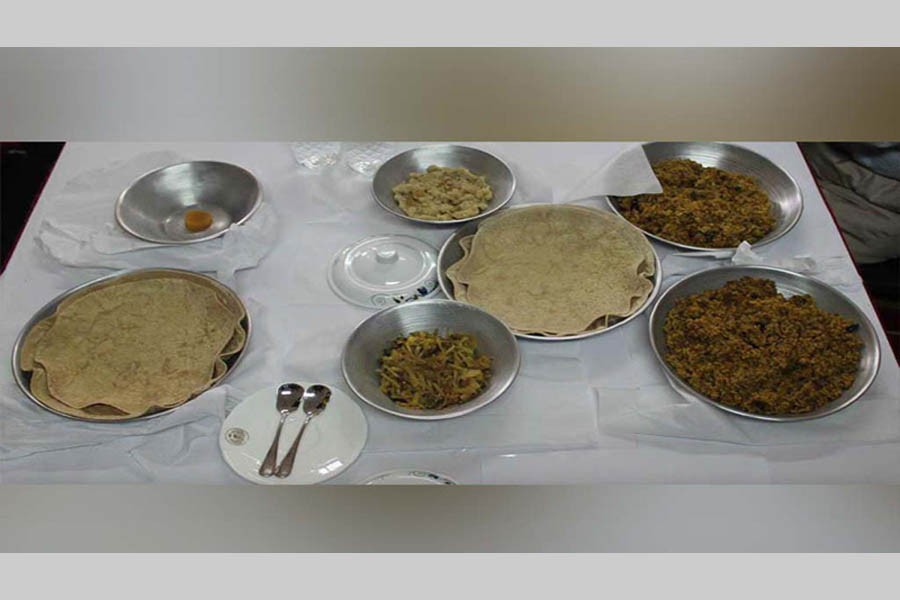There is good news for prisoners in Bangladesh jails. They have at last been able to break free from a notorious prison legacy of eating a measly quantity of bread and molasses for breakfast prevailing from the British period. Thanks to the authorities for realising, although belatedly, that 116 grams of dry bread and 14.5 grams of sugarcane molasses by no means constitute healthy eating. From now on they will be served improved breakfast of varied items such as khichuri (a meal of mixed rice, lentil and vegetables), more bread and vegetables and halua (sweet) on different days of the week. It is surprising to know that the change in the breakfast menu has come after 200 years. But improved breakfast alone cannot guarantee meeting the inmates' physical nutrition need. What about the quantity and quality of lunch and dinner served in Bangladesh prison?
Food intake is a strong determinant of the health people are expected to maintain. Adequate quality foods also have a positive impact on people's minds. The prison authorities claim that improved breakfast is part of a reform they have set themselves the task of bringing about in the condition of prisons. A prerequisite for survival, food when served in inadequate quantity and of low quality has been found to be responsible for sustaining criminality of prisoners in the Western countries' jails. Studies carried out have favoured serving improved diets for prisoners there. This should not be different here. So, along with improved breakfast, there is need for serving adequate nutritious meals at lunch and dinner for them. When the issue is human subsistence and the objective is to reform characters of the inmates, the cost will be outstripped by the benefit. The transformation of a criminal into a reformed person gives society both tangible and intangible dividends.
Admittedly, food is one element in the scheme of reform. Prisoners have to be treated with care. They must be given to understand that not all is lost for them. Their rehabilitation -both psychological and social -is what matters most. The authorities have reportedly taken a few steps in that direction. But more needs to be done. Minds with criminal bends have to be engaged in active and creative physical and mental tasks. Once they complete their prison terms and come out, they need to pursue honest livelihoods according to their skills and abilities. They must be prepared for employments to meet their needs.
In short, a prison has to transform itself from a place of rigid confinement into a reform centre. Actually the challenge lies there. It is easier said than done. In the West, the concept of jail as a reformatory or correctional centre has already taken roots. It may be relatively new to this part of the world, but considering the limitation of society and the overall potential benefit of a systemic improvement, it will be reasonable to start the process right now. Once begun, it will slowly bring about changes and that is how the challenge of reforming jail can be met eventually.


